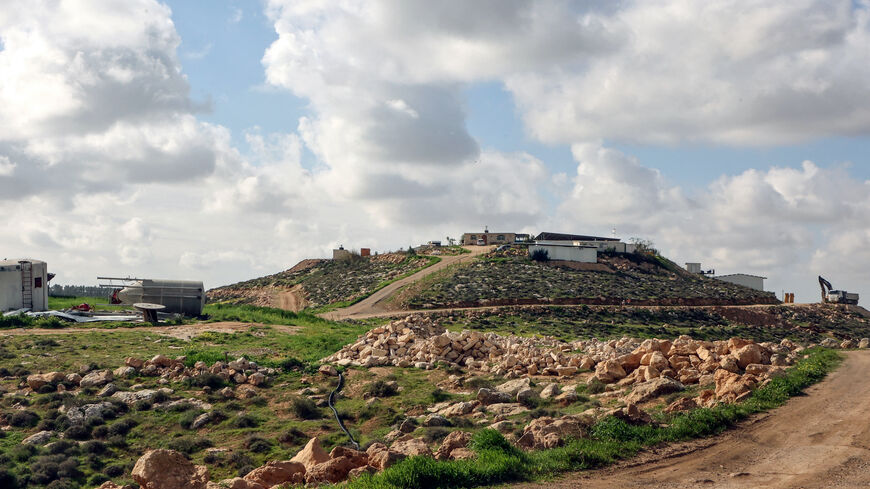US slams Smotrich's 'reckless' effort to legalize West Bank outposts
Israel's far-right finance minister is reportedly pushing to legalize 68 outposts during a time of rising settler violence against Palestinians in the West Bank.

WASHINGTON — In the latest sign of friction between the Biden administration and the Israeli government, the State Department on Wednesday voiced concern over a report that Israel’s far-right finance minister, Bezalel Smotrich, is seeking to legalize dozens of outposts in the occupied West Bank.
“These reports about directives to support illegal outposts in the occupied West Bank we believe to be dangerous and reckless,” deputy spokesperson Vedant Patel told Al-Monitor Wednesday.
“The Israeli government’s program is inconsistent with international law,” Patel said, adding that the administration has urged Israeli officials to "refrain from taking actions to fund outposts that have long been illegal under Israeli law.”
Israel’s Channel 12 reported Saturday that Smotrich, who is a member of Prime Minister Benjamin Netanyahu’s right-wing coalition, is pushing to legalize 68 West Bank outposts. The report said Smotrich instructed several ministries to begin preparations for various public services, such as medical clinics and schools, in each of the outposts once they are legalized.
The Israeli watchdog group Peace Now said Smotrich's directive effectively creates a “legalization bypass” through which the Israeli government can treat the unauthorized outposts as legal for the purposes of budgeting, construction and providing public services.
The report comes as the occupied West Bank experiences some of its worst violence against Palestinians since the war in Gaza erupted more than six months ago. The United Nations’ humanitarian arm, OCHA, has recorded 774 Israeli settler attacks against Palestinians since Oct. 7, resulting in 78 Palestinian deaths.
In response to the escalating settler violence, the Biden administration last week announced sanctions on two groups it said had raised tens of thousands of dollars for extremist settlers in the West Bank. It also blacklisted Ben-Zion Gopstein, a close associate of Israel’s far-right national security minister, Itamar Ben-Gvir, and leader of an organization whose members have allegedly carried out violence against Palestinian and Bedouin civilians.
The State Department is also expected to announce as soon as this week that Netzah Yehuda, an ultra-Orthodox Israeli military unit that operates in the West Bank, is barred from receiving US military assistance due to its gross violations of human rights. Restricting assistance to Netzah Yehuda would mark the first time the United States has applied the decades-old Leahy law to Israel, the recipient of some $3.8 billion in annual US military assistance.
Since taking office in December 2022, the Netanyahu-led government has sought to dramatically expand West Bank settlements, which are deemed illegal by most countries and which Palestinians say undermine their quest for statehood. More than 700,000 Israelis currently live in the West Bank and East Jerusalem, which Israel captured in the 1967 Middle East war.
In mid-February, Smotrich announced plans to build 3,000 new homes, “deepening our eternal grip on the entire land of Israel.” The next day, Secretary of State Antony Blinken announced that settlements in the West Bank are “inconsistent with international law," reversing a 2019 declaration from the Trump administration that abandoned the long-standing US position on construction in the West Bank.
The Biden administration has also stepped up its public criticism of Israel’s military campaign against Hamas, which the Gaza Health Ministry says has killed more than 34,000 people. It has warned Israel against launching a major military operation in Rafah, the southern Gazan city where more than half of the territory’s population of 2.3 million is sheltering.
An Israeli government spokesperson said Wednesday the country is "moving ahead" with its planned operation. Asked whether the administration believes Israel is addressing its concerns over Rafah, Patel said Wednesday, “We don’t.”
The State Department’s criticism came hours after President Joe Biden on Wednesday signed into law bipartisan legislation to send billions of dollars in wartime assistance to Israel.






